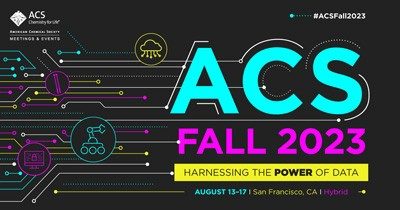Are you concerned about climate change? Be aware of contrarian claims. See, e.g., https://www.nature.com/articles/s41598-021-01714-4 and this editorial, https://www.science.org/doi/10.1126/science.adw1532
Good Indoor Air Quality requires adequate fresh air exchange, MERV 13 filters, monitor temperature, humidity, carbon dioxide CO2, volatile organic compounds (VOCs), formaldehyde (H2CO), particulates PM2.5, and radon.
SARS-CoV-2 coronavirus is an airborne vector and MERV 13 filters and masks can slow spreading of aerosols. Avoid poorly ventilated indoor areas, wear a mask when around others, and observe public health regulations. Practice prudent public health and hygiene. Vaccines provide defense mechanisms if you become infected.
Local wastewater monitoring is useful in the detection of viruses and other substances of concern in public health. See, e.g.,
COVID-19: Wisconsin Wastewater Monitoring Program
Wisconsin Wastewater Monitoring Program updated method of calculating concentration categories.
https://www.dhs.wisconsin.gov/covid-19/wastewater.htm
For more information, see:
https://chem-consult.com/page/sars-cov-2-and-coronavirus-and-covid-19-resources
American Chemical Society
ACS Spring 2025
San Diego, March 23-27
CINF Trusted Information for Public Policy
Reliable information is crucial for effective public policy discussion and decision-making. Policymakers need accurate, transparent, and trustworthy information to make good decisions and allocate resources that effectively address societal issues. Public trust and accountability are enhanced when evidence is used, not assumptions, bias, or speculation. Problem identification and framing can define issues and avoid or mitigate unintended consequences. When all stakeholders have access to the same reliable information and a voice in the discussion, the results are easier accepted by all. This symposium has speakers who will share their best practices in providing reliable information to the public.
https://acs.org
29th Green Chemistry & Engineering Conference
Pittsburgh, June 23-26, 2025
Photo- and Electro-Reduction of Carbon Dioxide
Earth’s atmosphere and oceans are awash with excessive carbon dioxide. Natural sinks are inadequate to maintain the biosphere in a state similar to pre-industrial times. Carbon dioxide, and other greenhouse gases, emitted from human activity are the driving force behind the accelerated warming of Earth’s atmosphere and oceans. Even if we stop dumping carbon dioxide into the atmosphere, dozens of years are the minimum timescale before a noticeable reduction in atmospheric carbon dioxide will be observed. Nature uses photosynthesis to convert carbon dioxide into carbohydrates and lessons from algae, methanotropes, and other biological systems can provide insight. What can human ingenuity do to circularize carbon from CO2 to CH4 and other chemical feedstocks? This session focuses on advancement in chemistry research and engineering design and scale-up for the photo- and electro-reduction of carbon dioxide. Aligned with U.N. Sustainable Development Goals (7) Affordable and Clean Energy, (9) Industry, Innovation, and Infrastructure, and (13) Climate Action. (Abstract submission closes February 17, 2025.)
https://gcande.org
American Chemical Society
ACS Fall 2025
Washington DC, August 17-21
ENFL & GEOC Methane: Policy for a Greenhouse Gas
The global market value of methane (natural gas) is projected to be $120 billion in 2025 and grow 5-10 % per year. Use of coal, oil, and gas contribute 120 million tons (Mt) of methane emission into the atmosphere. The United States is the largest emitter of methane (10%) and closely followed by the Russian Federation. In terms of contribution to the greenhouse gas inventory, methane is second, between carbon dioxide and nitrous oxide, and accounts for about 1/3 of the global warming since the industrial revolution. The atmospheric concentration of methane is increasing faster than at any time since record keeping began in the 1980s, but its savior is a mean atmospheric lifetime of about ten years. Methane won’t disappear from the market anytime soon, but control of emission is a near-term opportunity to mitigate Earth’s atmospheric warming. This symposium includes methane sources and sinks, measurement, control, and use technology, climate modeling, regulatory impacts, and market supply and demand. (Abstract submission closes March 31, 2025.)
Pacifichem 2025
Honolulu, December 15-20
Approaching Steady-State Atmospheric Methane in the Anthropocene
The current atmospheric concentration of methane exceeds 2.00 ppm and is increasing faster than at any time since record keeping began in the 1980s. Approximately 40% of the post-industrial revolution global warming (radiative forcing) can be ascribed to methane. Natural gas (methane) and liquified natural gas (LNG) are useful fuels and chemical feedstocks and easily transported via an established infrastructure. The 2024 market value of methane and LNG is projected to be US$117B and grow at least 10% per year. Methane’s savior is its mean atmospheric lifetime, ~10 years, and can provide a near-term opportunity to mitigate global warming. Unfortunately, the atmospheric lifetime of methane appears to be increasing, due to loss of hydroxyl radicals and other species in methane destruction reactions. Human activity contributes to the imbalance between natural sources and sinks. This symposium includes methane sources and sinks, measurement, control, and use technology, climate modeling, regulatory impacts, and market supply and demand. (Abstract submission closes April 2, 2025.) https://pacifichem.org

Share This News